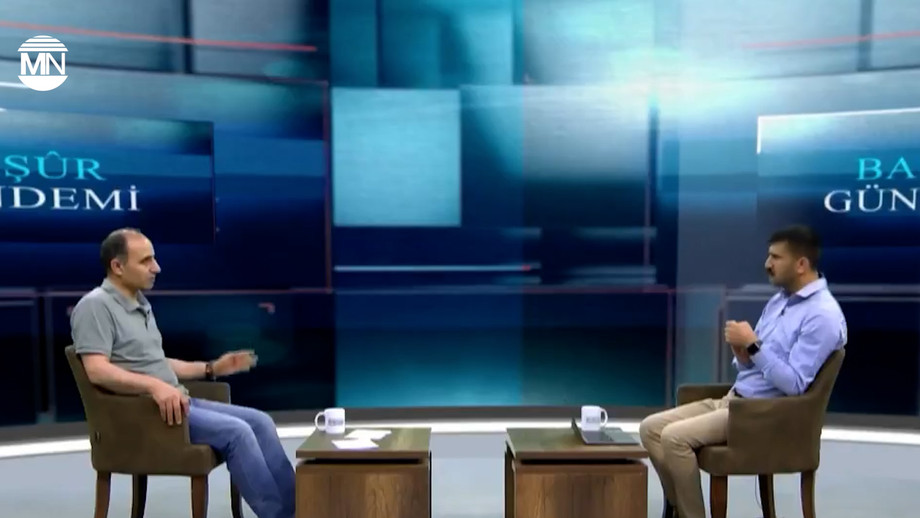Speaking on Medya Haber TV, journalist Halit Ermiş called on the Kurdish group PJAK to prioritise democratic self-defence and community organisation in Iranian Kurdistan, rather than relying on the collapse of the regime or intervention by foreign powers.
Kurdish journalist Halit Ermiş has urged the Kurdistan Free Life Party (PJAK) to extend its grassroots organisation and expand its civil self-defence structures in Iranian Kurdistan, warning that the region’s future cannot be entrusted to either regime collapse or foreign military intervention.
Speaking on the Başur Gündemi (South Kurdistan Agenda) programme on Medya Haber TV on Saturday, Ermiş argued that the PJAK should take inspiration from the Rojava model in northern Syria, where Kurdish-led local assemblies and defence forces operate independently of both the state and international powers.
“The best thing the PJAK can do is prepare its own self-defence forces and organise democratically,” he said. “Kurdish forces have never been anyone’s proxy. They proved this in Rojava,” he added, probably referring to certain extremist narratives on social media that PJAK is supporting Israel in the current conflict.
His remarks follow a statement made by PJAK on the same day, in which the group rejected war as a solution to Iran’s political crisis, calling instead for a democratic uprising from below. That statement came amid rising tensions between Iran and Israel, including airstrikes and military posturing that have stirred fears of a broader conflict.
Ermiş criticised what he described as “strategic ambiguity” in some political circles, cautioning against the illusion that regime change would automatically lead to freedom. “Iran’s collapse will not guarantee democracy,” he said, adding that genuine change must be built up “from the streets, neighbourhoods and communes.”
Referring to the influence of jailed leader Abdullah Öcalan, Ermiş said Kurdish movements must pursue a “third line” independent of both the Iranian regime and imperial interests. He added that the PJAK should work to unify the energies of women, youth and minorities into a new democratic social contract, rooted in local agency and cultural self-determination.
“The time has come to create a Rojava in Rojhilat,” he said.
Ermiş’s intervention signals growing debate within Kurdish political circles about the appropriate strategy for Iranian Kurdistan – also known as Rojhilat – at a time of regional instability and internal repression.
Related: PJAK: Iran’s future depends on democratic struggle, not war

